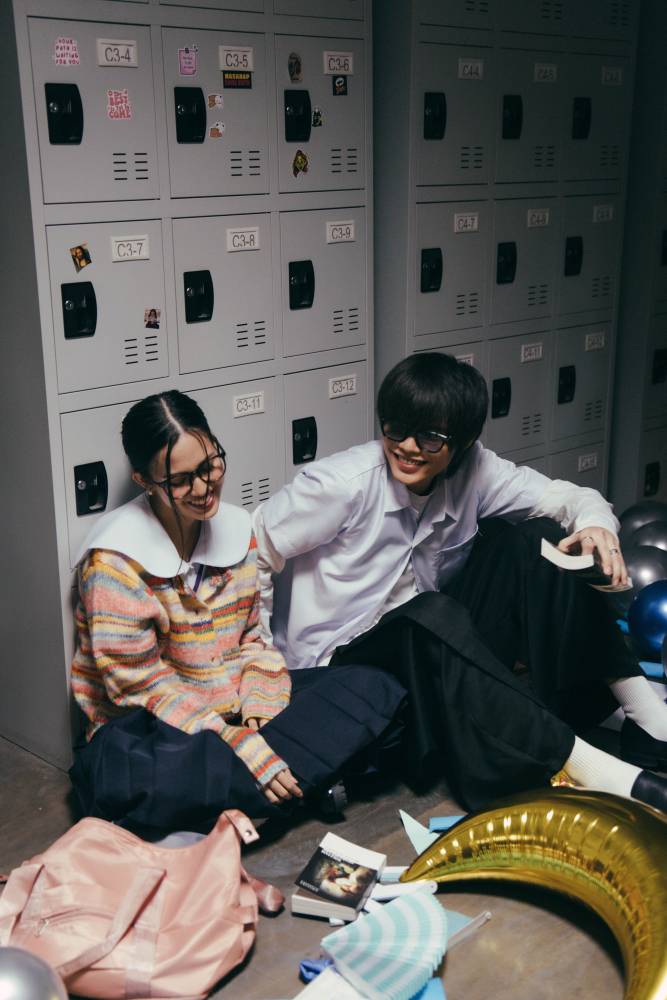In Manila, Jolianne gets by with a little help from her Bisaya friends

Jolianne never saw herself moving out of Cebu City, the place she was born and raised, and still considers her “dream city.” In fact, if she could have it her way, she jokes, she will probably live with her parents until she’s 40.
But as much as she loves her hometown and its comforts, she also knows that it was only through discomfort that she could grow as an artist. So, five years ago, at the age of 17, she packed her bags and relocated to Manila after getting an offer to sign with Careless Music.
It was an opportunity the young singer-songwriter felt she had to take; she would just have to figure out what came after.
Extra driving force
Manila wasn’t exactly new to her; she once stayed there when she competed in “The Voice Kids” in 2015. Still, just as she had expected, it wasn’t easy. Uprooting yourself to pursue your dreams never is—much less for a teenager still navigating adolescence.
But if there was anyone who understood what it’s like to be compelled to sing and write in a second or third language in hopes of getting a crack at the mainstream, it was her fellow Bisaya musicians from Visayas and Mindanao.

And it’s with them that Jolianne found comfort and inspiration as she tried to find her footing in the capital.
“One thing about the VisMin community in Manila—especially among artists or creatives—is that we always seek to help each other whenever we can,” she tells Lifestyle Inquirer. “We all know what it’s like to start over and chase your dreams in a new city. We left everything behind, so we have that extra driving force to make things work.”
The music scenes in the Visayas and Mindanao, she observes, have been “growing and evolving exponentially”—a haven for untapped talent. But the reality is that opportunities aren’t as readily available as they are in Manila.
That’s why it’s heartening, Jolianne says, to see her fellow Cebuanos—including Juan Karlos, Janine Berdin, MRLD, Dom Guyot—and other Bisaya artists leading the way or staying in charge. “Bringing our music here is a collective effort; not a race,” she stresses. “I want to thank the VisMin artists who have been supportive and protective of their own.”

The purest kind of love
The growing list of voices amplifying Bisaya artistry also includes R&B hitmaker Arthur Nery (Cagayan de Oro) and Luke April of the alternative hip-hop group PLAYERTWO (Davao City). Together, they helped bring to life Jolianne’s latest single, “Palayo sa Mundo.”
Born in a songwriting camp, the track started out as “The World Can Wait”—an introspective English concept by Jolianne about self-identity. But after bouncing ideas off each other, she realized that she wanted something that had the essence of OPM, which, to her, was romance.
And the best way to express that, she figured, was to write it in Tagalog. Nery, the one more proficient in the language, put pen to paper. April, meanwhile, produced the guitar sample on which the song would gently coast.
One of her goals this year is to open herself up to more collaborations—and she couldn’t have chosen better people to set the tone. “Lahat kami Bisaya, so we didn’t have to translate or code-switch while working—we talked freely as ourselves. The connection was instant,” says Jolianne, whose biggest songs so far include “Halfway There,” her debut single, “Irises,” and “Lullaby,” also with Nery.

The result was an acoustic pop-R&B ballad about the bittersweet nature of a love reciprocated, but ultimately thwarted by fate. “Love isn’t about guarantees,” Jolianne points out. “I love because I want to, and I don’t expect anything back. That, for me, is the purest kind of love.”
The production is warm, if a bit sparse—better for Jolianne’s intimate, feathery crooning and Nery’s mellow yearning to suffuse the space. The verses feel contemporary, with shifts in cadence and delivery that straddle singing and rapping.
The chorus’s melody, by contrast, is quintessential OPM, with a memorable ending refrain: “Panalangin ang tangi kong alay.”
An extension of Filipino identity
If the premise of her debut EP, “Plain Girl,” is about “a hopeless romantic who has never been in love, stepping outside of her bubble in Cebu,” then “Palayo” serves as “a small documentation of falling in love for the first time.” The messaging of her song is often a direct reflection of where she is in life, but she can see her musical direction taking off from “Palayo,” whose sound resonates deeply with her.
“I would like to write more Tagalog songs. I’m still learning the language. Speaking it is one thing; writing in it is another. I’m not well-versed with Tagalog literary devices yet, but I will happily take on that challenge,” says Jolianne, who, as a child, loved poetry and later melded it with music as she discovered her voice.
She also hopes to continue exploring themes of love and romance in her writing. After all, crafting a ballad like “Palayo sa Mundo”—a song dedicated to selfless affection—is, in a way, an extension of the Filipino identity.

















